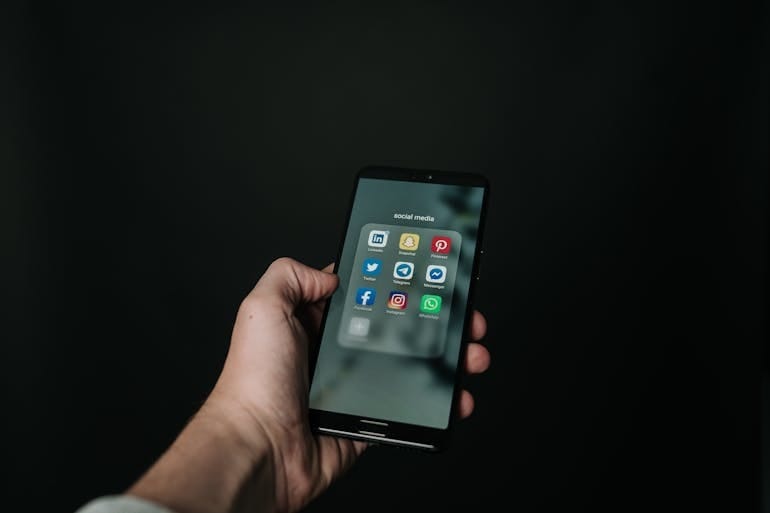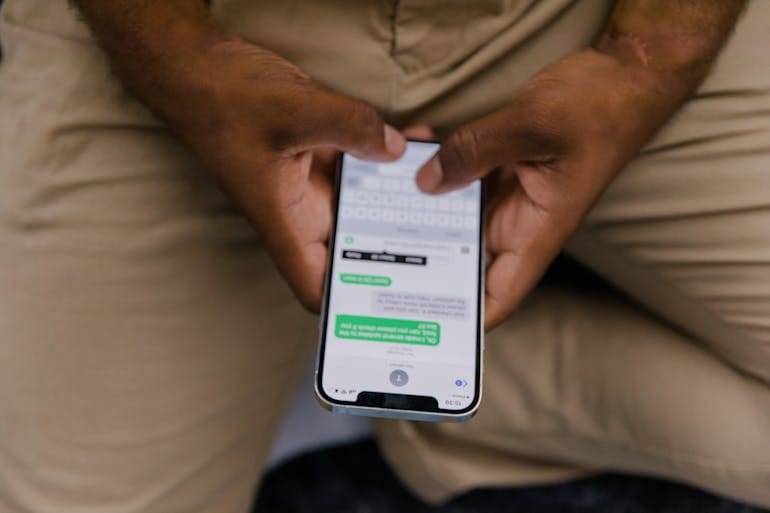In addiction-related cases, social media evidence is increasingly used to build narratives about a person’s behavior, intent, or lifestyle. Posts, photos, messages, and even comments can serve as key pieces of evidence in court. While platforms like Instagram and Facebook may feel personal, the content shared can often be accessed and scrutinized during investigations. So, here, we’ll explore the types of social media evidence in addiction-related cases that can harm individuals, how such evidence is used, and what steps you can take to safeguard against potential legal risks.
How Social Media is Scrutinized in Legal Proceedings
In legal proceedings, social media content is a goldmine of evidence that can reveal patterns of behavior, intent, and credibility. Platforms like Facebook, Instagram, TikTok, and Twitter are commonly reviewed for posts, photos, videos, and messages that might support or challenge claims in court. Investigators analyze timestamps, geotags, and multimedia content to build a comprehensive picture of an individual’s activities. Even deleted posts or private messages can sometimes be retrieved through court orders.
For example, in family law proceedings where addiction is involved, photos or posts depicting substance use could be presented to question a parent’s fitness for custody. Social media evidence in addiction-related cases is often introduced to demonstrate risky behaviors or inconsistencies in testimony. Courts consider public posts and interactions like comments and likes, which may reflect the user’s mindset. This scrutiny highlights the need to be cautious about what you share online, even in seemingly private spaces.

Types of Social Media Evidence That Can Be Used Against You
The impact of social media evidence in addiction-related cases can be significant, as it often provides a detailed record of an individual’s behavior. Courts and investigators examine various types of online activity to identify patterns that could harm a person’s case. Content doesn’t have to be directly related to addiction to raise concerns—it can still be interpreted negatively in court.
Here are examples of social media evidence that can be used against you:
● Photos or videos showing substance use: Posts depicting drug or alcohol consumption may suggest ongoing addiction issues.
● Messages referencing substance use: Private messages discussing drug or alcohol use can serve as direct evidence.
● Party or gathering posts: Images from events where substances are present can imply risky behavior.
● Comments, likes, or shares: Engaging with content that promotes substance use can be interpreted as endorsement or intent.
● Timestamped posts: Content shared at questionable times, like during work or parenting hours, may raise red flags.
The Influence of Social Media on Perceptions of Addiction
Social media often shapes public perceptions of addiction, and in legal cases, it can be used as evidence to highlight risky behavior. Platforms are filled with posts that normalize substance use, whether through casual references, celebratory content, or viral trends. While these posts may seem harmless, they contribute to societal attitudes that downplay the seriousness of addiction.
The risks of normalizing drug use are significant, as such content may not only influence societal attitudes but also impact how addiction-related behaviors are viewed in a legal context. For example, sharing or engaging with posts that glorify drug use can reinforce stigma or suggest a lack of accountability.
In addiction-related cases, courts often interpret this content to build a narrative about an individual’s character or priorities. Misrepresentation is another danger, as a single post can be taken out of context and used to justify unfavorable outcomes.

Privacy Settings and Their Limitations
Many people rely on privacy settings to protect their social media content, but these settings are not foolproof. Courts can request access to private posts, deleted messages, and other hidden content through subpoenas or warrants. This means that even content you believe is secure can still be reviewed and used in legal cases.
For example, in cases involving prescription drug abuse, it’s possible to retrieve private messages discussing the misuse of medication and present them as evidence to establish a pattern of behavior. While privacy settings can limit public visibility, they do not make your posts completely inaccessible in legal contexts.
Additionally, screenshots taken by others can circulate beyond your control, and tagged posts from friends may expose incriminating content. It’s even possible to recover deleted posts through forensic tools. Relying solely on privacy settings is risky; the best approach is to avoid sharing sensitive or potentially harmful content altogether.
The Legal and Ethical Boundaries of Using Social Media Evidence
The use of social media evidence in addiction-related cases raises legal and ethical concerns. While courts may admit such evidence to establish behavior patterns or credibility, strict laws govern its collection and use. Evidence must be relevant, authentic, and legally obtained to be admissible.
For example, consider how substance abuse can complicate personal injury claims. Social media posts showing alcohol consumption can challenge the plaintiff’s credibility and behavior. However, ethical concerns arise when content is taken out of context or accessed through deceptive means, such as hacking or misrepresentation.
Privacy rights are another key consideration. While courts can subpoena private content, this practice can feel invasive and lead to misinterpretation of online behavior. Defendants and attorneys can challenge the admissibility of social media evidence if it violates privacy laws or lacks relevance.
Privacy Settings and Their Limitations
Many people rely on privacy settings to protect their social media content, but these settings are not foolproof. Courts can request access to private posts, deleted messages, and other hidden content through subpoenas or warrants. This means that even content you believe is secure can still be reviewed and used in legal cases.
For example, in cases involving prescription drug abuse, it’s possible to retrieve private messages discussing the misuse of medication and present them as evidence to establish a pattern of behavior. While privacy settings can limit public visibility, they do not make your posts completely inaccessible in legal contexts.
Additionally, screenshots taken by others can circulate beyond your control, and tagged posts from friends may expose incriminating content. It’s even possible to recover deleted posts through forensic tools. Relying solely on privacy settings is risky; the best approach is to avoid sharing sensitive or potentially harmful content altogether.
The Legal and Ethical Boundaries of Using Social Media Evidence
The use of social media evidence in addiction-related cases raises legal and ethical concerns. While courts may admit such evidence to establish behavior patterns or credibility, strict laws govern its collection and use. Evidence must be relevant, authentic, and legally obtained to be admissible.
For example, consider how substance abuse can complicate personal injury claims. Social media posts showing alcohol consumption can challenge the plaintiff’s credibility and behavior. However, ethical concerns arise when content is taken out of context or accessed through deceptive means, such as hacking or misrepresentation.
Privacy rights are another key consideration. While courts can subpoena private content, this practice can feel invasive and lead to misinterpretation of online behavior. Defendants and attorneys can challenge the admissibility of social media evidence if it violates privacy laws or lacks relevance.

Private messages can even be retrieved and used in some cases.
Steps to Protect Yourself from Harmful Social Media Evidence
Since anything shared online can potentially become evidence in court, it’s essential to manage your digital footprint carefully. Here are actionable steps to safeguard yourself:
● Avoid posting sensitive content: Refrain from sharing photos, videos, or statements that are easy to misinterpret.
● Review past activity: Regularly check and delete old posts that may raise questions about your behavior or intent.
● Strengthen privacy settings: Limit who can view your content and adjust settings to ensure maximum protection.
● Disable tagging: Prevent others from tagging you in posts or photos that could negatively impact you.
● Consider deactivating accounts: Temporarily close accounts during ongoing legal cases to minimize risks.
● Consult a legal professional: Seek advice on how to handle social media during your case.
Protect Your Online Presence to Safeguard Your Future
Social media evidence in addiction-related cases can significantly impact legal outcomes. You can safeguard your legal standing by understanding what content can harm you and taking proactive steps to protect your digital footprint. Stay mindful of your online activity and seek professional advice to navigate the risks associated with social media evidence in addiction-related cases.


